King's College London
Creative writing research phd.
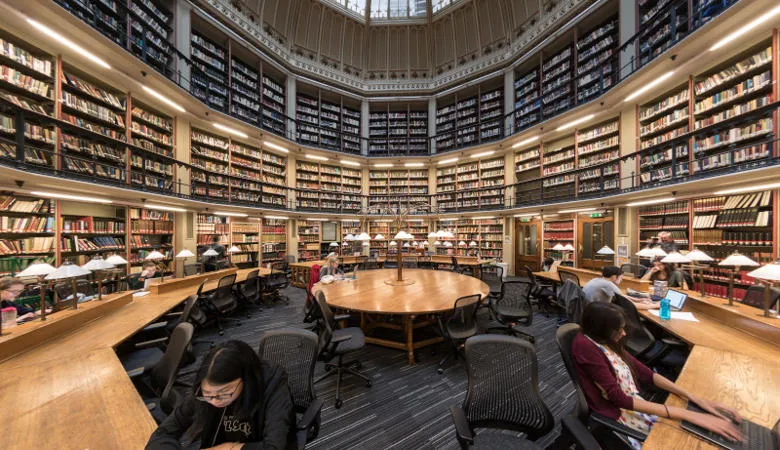

Key information
The PhD in Creative Writing at King’s is a practice-led course, incorporating taught elements and aspects of professional development. It is designed to cater for talented, committed writers who are looking to complete a book-length creative work for publication and sustain a long-term career in writing.
Key Benefits
Our unique programme offers students:
- a varied, structured framework for the development of their creative work, with regular feedback from experienced author-lecturers in the department through supervision and workshops
- purposeful engagement with professionals from the publishing and performance industries throughout the course, building potential routes to publication
- valuable teaching experience in creative writing at HE-level through our Graduate Teaching Assistantship scheme
- practical experience in public engagement, through curating and chairing public literary events at King’s
- a community of fellow writers and collaborative projects
English Department
We have over 100 doctoral students from all over the world working on a wide range of projects. Together with our community of postdoctoral fellows, our early career researchers both organise and participate in our thriving seminar and conference culture.
The English department is home to award-winning novelists, poets, essayists, biographers, non-fiction authors, and literary critics, who supervise creative projects at doctoral level within their specialisms.
Works by our staff have won or been shortlisted for a number of literary accolades, including: the T.S. Eliot Prize, the Forward Prize, the Man Booker Prize, the Sunday Times Young Writer of the Year, the Costa First Novel Award, the Costa Poetry Award, the Somerset Maugham Award, the Commonwealth Book Prize, the Biographers’ Club / Slightly Foxed First Biography Prize, the U.S. National Book Critics Circle Award, the CWA Gold Dagger Award, the European Union Prize for Literature, the RSL Encore Award, the Los Angeles Times Book Award, the E.M. Forster Award from the American Academy of Letters, le Prix du Roman Fnac, le Prix du Roman Etranger, the Kiriyama Prize, the Republic of Consciousness Prize, the Royal Society of Literature’s Encore Award, and the OCM Bocas Prize for Caribbean Literature. Many of the creative writing staff are Fellows of the Royal Society of Literature.
Their most recent publications are:
Benjamin Wood
The Young Accomplice (Penguin Viking, 2022) – fiction
A Station on the Path to Somewhere Better (Scribner, 2018) – fiction
Edmund Gordon
The Invention of Angela Carter (Chatto & Windus, 2016) – creative non-fiction
Loop of Jade (Chatto & Windus, 2015) – poetry
Anthony Joseph
Sonnets for Albert (Bloomsbury Publishing, 2022) – poetry
The Frequency of Magic (Peepal Tree Press, 2019) – fiction
Lara Feigel
The Group (John Murray Press, 2020) – fiction
Free Woman: Life, Liberation and Doris Lessing (Bloomsbury, 2018) – creative non-fiction
Homing: On Pigeons, Dwellings, and Why We Return (John Murray Press, 2019) – creative non-fiction
Daughters of the Labyrinth (Corsair, 2021) – fiction
Beethoven Variations: Poems on a Life (Chatto & Windus, 2020) – poetry
Emerald (Chatto & Windus, 2018) – poetry
Andrew O'Hagan
Mayflies (Faber & Faber, 2020) – fiction
The Secret Life: Three True Stories (Faber & Faber, 2017) – creative non-fiction
*may vary according to research leave and availability.
King's Alumni
The list of King’s alumni not only features many acclaimed contemporary authors—Michael Morpurgo, Alain de Botton, Hanif Kureishi, Marina Lewycka, Susan Hill, Lawrence Norfolk, Ross Raisin, Alexander Masters, Anita Brookner, and Helen Cresswell—it also includes major figures in literature, such as Maureen Duffy, Arthur C Clarke, Thomas Hardy, Christopher Isherwood, BS Johnson, John Keats, W. Somerset Maugham, and Virginia Woolf.
Course Detail
Our postgraduate writing students are given a supportive environment in which to enhance their technique, to explore the depths of their ideas, to sustain their creative motivation, and to prepare them for the demands of the writer’s life beyond the College.
At King's we know that writing well requires self-discipline and an ability to work productively in isolation; but we also appreciate that postgraduate writers thrive when they are part of a community of fellow authors, an environment of constructive criticism and shared endeavour.
That is why we offer our PhD students the guidance of knowledgeable and experienced practitioners. They will have frequent opportunities to interact and collaborate with peers and forge lasting connections within London’s writing industry.
Students will be expected to attend the quarterly Thesis Workshop, and also to take an active part in curating literary events at King’s, including the Poetry And… quarterly reading series. They will be invited to apply for positions teaching undergraduate creative writing modules as part of the Department’s Graduate Teaching Assistantship (GTA) scheme.
After three years (full-time) or six years (part-time), students are expected to submit either:
- a novel or short story collection
- a poetry collection
- a full-length work of creative non-fiction
In addition, they are also required to submit an essay (up to 15,000 words) that examines their practical approach to the conception, development, and revision of their project, and which explores how their creative work was informed by research (archival, book-based, or experiential).
- How to apply
- Fees or Funding
Many of our incoming students apply for AHRC funding via the London Arts and Humanities Partnership. Please see their website ( www.lahp.ac.uk ) for more detail of deadlines, application procedure and awards available. Also the ‘Student Funding’ section of the Prospectus will give you more information on other scholarships available from King’s.
UK Tuition Fees 2024/25
Full time tuition fees:
£6,168 per year (MPhil/PhD, Creative Writing)
Part time tuition fees:
£3,084 per year (MPhil/PhD, Creative Writing)
International Tuition Fees 2024/25
£24,786 per year (MPhil/PhD, Creative Writing)
£12,393 per year (MPhil/PhD, Creative Writing)
UK Tuition Fees 2025/26
£6,600 per year (MPhil/PhD, Creative Writing)
£3,300 per year (MPhil/PhD, Creative Writing)
International Tuition Fees 2025/26
£27,100 per year (MPhil/PhD, Creative Writing)
£13,550 per year (MPhil/PhD, Creative Writing)
These tuition fees may be subject to additional increases in subsequent years of study, in line with King’s terms and conditions.
- Study environment
Base campus

Strand Campus
Located on the north bank of the River Thames, the Strand Campus houses King's College London's arts and sciences faculties.
PhD in Creative Writing students are taught through one-to-one sessions with an appointed supervisor in their chosen specialism (fiction, creative non-fiction, or poetry) as well as through quarterly thesis workshops. They are also appointed a second supervisor whose role is to offer an additional perspective on the work being produced.
We place great emphasis on pastoral care and are a friendly and welcoming department in the heart of London. Our home in the Virginia Woolf Building offers many spaces for postgraduate students to work and socialise. Studying in London means students have access to a huge range of libraries from the Maughan Library at King’s to the Senate House Library at the University of London and the British Library.
Our PhD Creative Writing students are taught exclusively by practicing, published writers of international reputation. These include:
Benjamin Wood (Senior Lecturer in Creative Writing)
Supervises projects in fiction.
Edmund Gordon (Senior Lecturer in Creative Writing)
Supervises projects in fiction and creative non-fiction.
Sarah Howe (Lecturer in Poetry)
Supervises projects in poetry.
Anthony Joseph (Lecturer in Creative Writing)
Supervises projects in poetry and fiction.
Jon Day (Senior Lecturer in English)
Supervises projects in creative non-fiction and fiction
Lara Feigel (Professor of Modern Literature)
Supervises projects in creative non-fiction and fiction.
Ruth Padel (Professor Emerita of Poetry)
Andrew O’Hagan (Visiting Professor)
*Teaching staff may vary according to research leave and availability.
Our programme also incorporates the following taught components:
Thesis Workshop
A termly writing seminar for the discussion and appraisal of works-in-progress. These are taught on a rotational basis by all members of the creative writing staff, so that students get the benefit of hearing a range of voices and opinions on their work throughout the course.
The Writing Life
A suite of exclusive guest talks and masterclasses from leading authors, publishers, and editors, in which students receive guidance from people working at the top level of the writing industry and learn about the various demands of maintaining a career as a writer.
Recent speakers have included Amit Chaudhuri, Chris Power, Rebecca Watson, Mendez, Frances Leviston, Joanna Biggs, Joe Dunthorne, Francesca Wade, Kishani Widyaratna, Jacques Testard and Leo Robson.
Other elements of professional development are included in the degree:
Agents-in-Residence
Candidates in fiction or creative-nonfiction will meet and discuss their work in one-to-one sessions with invited literary agents, who are appointed to yearly residencies. These sessions offer writers a different overview of the development of their project: not solely from the standpoint of authorial technique, but with a view towards the positioning of their writing within a competitive and selective industry. Poetry candidates will meet and discuss their work with invited editors from internationally recognised poetry journals and presses.
Undergraduate Teaching
Through our Graduate Teaching Assistant (GTA) training scheme, our PhD students can apply to lead undergraduate creative writing workshops in fiction, creative non-fiction, and/or poetry, enabling them to acquire valuable HE-level teaching experience that will benefit them long after graduation.
Reading Series
Our students are required to participate in the curation of literary events at King’s. They are also responsible for curating Poetry And… , a quarterly reading in which leading poets illuminate the powerful connections between poetry and other disciplines. Students will develop skills in public engagement by chairing discussions and may also perform excerpts of their own writing.
Postgraduate Training
There is a range of induction events and training provided for students by the Centre for Doctoral Studies, the Faculty of Arts and Humanities and the English Department. A significant number of our students are AHRC-funded through the London Arts and Humanities Partnership (LAHP) which also provides doctoral training to all students. All students take the ‘Doctoral Seminar’ in their first year. This is a series of informal, staff-led seminars on research skills in which students can share and gain feedback on their own work. We run a series of ‘Skills Lunches’, which are informal lunch meetings with staff, covering specific topics, including Upgrading, Attending Conferences, Applying for Funding and Post-Doctoral Awards, etc. Topics for these sessions are generally suggested by the students themselves, so are particularly responsive to student needs. We have an Early Career Staff Mentor who runs more formal workshops of varying kinds, particularly connected to career development and the professions.
Through our Graduate Teaching Assistantship Scheme, doctoral students can apply to teach in the department (usually in their second year of study) and are trained and supported as they do so.
- Entry requirements

Find a supervisor
Search through a list of available supervisors.

Find out more about our King's accommodation
Discover your accommodation options and explore our residences.

Connect with a King’s Advisor
Want to know more about studying at King's? We're here to help.

Learning in London
King's is right in the heart of the capital.

Creative Writing Programs in Europe: Explore Your Options Abroad
My name is Debbie, and I am passionate about developing a love for the written word and planting a seed that will grow into a powerful voice that can inspire many.

Introduction to Creative Writing Programs in Europe
Why consider studying creative writing in europe, top creative writing programs in europe: overview and rankings, location, language, and cultural immersion: factors to consider, unleash your creativity: unique features of european creative writing programs, scholarships, funding, and financial considerations for european writing programs, recommendations for choosing the right creative writing program in europe, frequently asked questions, key takeaways.
If you have a passion for writing and yearn to enhance your creativity, look no further than the captivating world of creative writing programs in Europe. Renowned for their rich literary traditions and diverse cultural landscapes, Europe offers a plethora of opportunities for aspiring writers to refine their craft and immerse themselves in an inspiring environment. These programs, varying in duration and intensity, provide an ideal platform for budding writers to unleash their imagination and explore the depths of their literary potential.
Whether you dream of penning captivating novels, engaging short stories, or expressive poetry, creative writing programs in Europe offer a remarkable array of specialized courses and workshops to hone your skills. From mastering the art of crafting compelling characters and building intricate plotlines to experimenting with different genres, these programs are designed to cater to all facets of the writing process. Delve into the world of descriptive prose, learn the nuances of dialogue, and develop your unique voice under the guidance of experienced mentors who are well-versed in the complexities of the literary world. Immerse yourself in a vibrant community of like-minded writers, where you can exchange ideas, share feedback, and draw inspiration from fellow wordsmiths.

When it comes to pursuing a creative writing education, Europe offers a wealth of unique and inspiring opportunities. Whether you’re a budding novelist, poet, or playwright, studying creative writing in Europe can expand your horizons and provide a transformative learning experience. Here are a few reasons why considering Europe as your destination for creative writing studies:
- Rich Literary Heritage: Europe is renowned for its rich literary heritage. From Shakespeare’s plays in the United Kingdom to the poetry of Pablo Neruda in Spain, studying in Europe means immersing yourself in the birthplace of some of the world’s greatest literary minds.
- Multicultural Exposure: Europe is a melting pot of diverse cultures and languages. By studying creative writing here, you’ll be immersed in a multicultural environment that fosters creativity and encourages cross-cultural exploration. Exposing yourself to different perspectives and storytelling traditions can greatly enhance your own writing skills.
- Expert Instruction: Many European institutions offer prestigious creative writing programs taught by renowned writers and industry professionals. The opportunity to learn from experienced mentors who are passionate about the craft can provide invaluable guidance and help you develop your own voice and style.
- Inspiring Surroundings: Draw endless inspiration from Europe’s breathtaking landscapes, architectural marvels, and historic sites. Whether it’s strolling through the cobblestone streets of Paris, finding solace near the serene Scottish lochs, or getting lost in the vivid colors of Italy’s countryside, Europe offers a limitless canvas that can fuel your creativity.
Studying creative writing in Europe allows you not only to refine your craft but also to immerse yourself in a vibrant and creative community of like-minded individuals. You’ll have the chance to attend literary festivals, workshops, and interact with published authors who can provide valuable insights and networking opportunities. Ultimately, studying creative writing in Europe can be a transformative experience that ignites your passion for storytelling and shapes you as a writer.

Europe boasts a wide range of exceptional creative writing programs that cater to aspiring writers looking to hone their skills and unleash their creativity. With the continent’s rich literary heritage and diverse cultural landscape, these programs offer a unique and inspiring environment for writers to flourish. Whether you’re interested in pursuing a Bachelor’s degree, a Master’s degree, or even a short-term workshop, Europe has something for everyone.
Here are some of the top creative writing programs in Europe, known for their excellent faculty, innovative curriculum, and unparalleled resources:
1. University College Dublin (UCD) – Located in the vibrant city of Dublin, UCD’s Creative Writing program is highly regarded for its strong focus on the craft of writing and its emphasis on nurturing students’ individual voice. With a dynamic range of courses covering fiction, poetry, scriptwriting, and more, UCD provides aspiring writers with a solid foundation in the art of storytelling.
2. University of East Anglia (UEA) – Situated in Norwich, the first UNESCO City of Literature in England, UEA offers a renowned Creative Writing program that has produced notable alumni such as Ian McEwan and Kazuo Ishiguro. With a prestigious faculty and a supportive writing community, UEA provides students with ample opportunities for collaboration and growth. The program also boasts a literary festival and hosts various events featuring acclaimed writers, making it an enriching experience for aspiring authors.
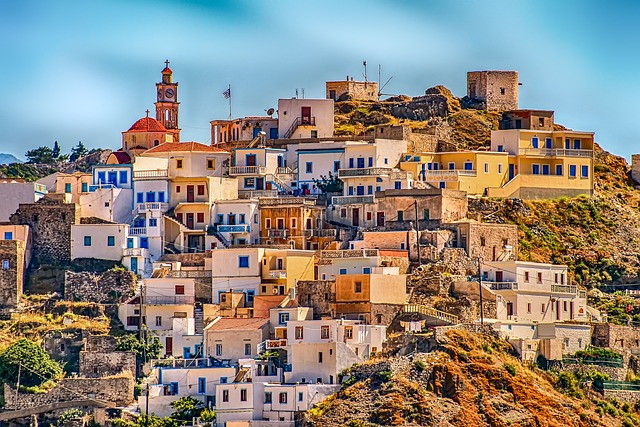
When embarking on a new adventure, such as traveling abroad or studying in a foreign country, it’s essential to consider several factors that will shape your experience. Location plays a crucial role in determining the kind of cultural immersion you can achieve. It’s important to choose a destination that aligns with your interests and preferences. Whether you are drawn to the bustling streets of a cosmopolitan city, the serene landscapes of a rural area, or the rich historical sites of an ancient town, the location you choose will significantly influence the cultural experiences available to you.
Language is another key factor to consider when seeking cultural immersion. By choosing a destination where the local language is different from your own, you have an incredible opportunity to dive into a new linguistic world. Learning a new language not only enhances your travel experience but also broadens your perspectives. Engaging in conversations with locals in their native tongue allows you to truly connect with the culture and gain a deeper understanding of their way of life. Moreover, by immersing yourself in language, you can uncover hidden gems and experiences that are often inaccessible to those strictly relying on English.
- Research the local customs and traditions to ensure your compatibility with the culture
- Consider the availability of language classes or language exchange programs in your chosen destination
- Connect with fellow travelers or join local communities to foster cultural interactions and understanding
Furthermore, cultural immersion goes beyond language and location. It’s about immersing yourself in the daily life, customs, and traditions of the locals. Experiencing the local traditions firsthand can bring you closer to their values and way of life. Whether it’s joining a local festival, participating in traditional ceremonies, or indulging in authentic cuisine, embracing these cultural elements allows you to create meaningful connections and memories that will last a lifetime. Remember, cultural immersion is a transformative journey that provides you with a profound insight into the world and its diverse people.
- Be open-minded and respectful towards local customs and traditions
- Try local dishes and engage in cultural activities to fully immerse yourself in the local lifestyle
- Immerse yourself in the arts, music, and literature of the culture to gain a deeper understanding

European creative writing programs are known for their unique features that truly unleash the creativity of aspiring writers. These programs provide a supportive and dynamic environment that fosters innovation and encourages students to think outside the box. Here are some key features that set European creative writing programs apart:
- Multi-disciplinary approach: European creative writing programs often incorporate a multi-disciplinary approach, allowing students to explore various literary genres, styles, and techniques. This broadens their horizons and encourages them to experiment with different forms of expression, leading to the development of their own unique writing voice.
- Emphasis on cultural diversity: European creative writing programs celebrate diversity by encouraging an exploration of different cultures and perspectives. Students are exposed to a rich tapestry of literary traditions from across Europe, inspiring them to incorporate diverse elements into their own writing. This not only enhances their creativity but also fosters a deeper understanding and appreciation of global literature.
- Integration of writing workshops and masterclasses: European creative writing programs place a strong emphasis on practical learning through workshops and masterclasses conducted by established writers. These sessions provide invaluable opportunities for students to receive personalized feedback and guidance from industry professionals, enhancing their writing skills and allowing them to grow as writers.
European creative writing programs truly offer a unique and inspiring experience for aspiring writers. By combining a multi-disciplinary approach, cultural diversity, and practical learning opportunities, these programs empower students to unleash their creativity and develop their unique writing abilities. Whether you are interested in traditional literature, experimental forms, or even cross-genre exploration, European creative writing programs have something to offer for every writer seeking to embark on a transformative journey of self-expression.

If you are considering a European writing program but are concerned about the financial implications, worry no more! There are various scholarships and funding options available to support your literary journey. Here are a few considerations to help alleviate your financial concerns:
- Scholarship Opportunities: Many European universities and educational institutions offer scholarships specifically designed for international students. These scholarships can cover part or all of your tuition fees, accommodation expenses, and even provide a stipend for living costs. Don’t hesitate to explore these opportunities as they can greatly reduce the financial burden.
- Government Grants: Several European countries provide grants and financial aid to support international students studying in their respective countries. These grants can be merit-based, need-based, or specific to certain writing programs. Research the governmental institutions and agencies that offer such grants and see if you meet their eligibility criteria.
External Funding Organizations: There are numerous external funding organizations that aim to support individuals pursuing a writing career. These organizations often offer scholarships, grants, and fellowships specifically for aspiring writers. Do some thorough research to find out which organizations align with your goals and aspirations, and apply for their funding opportunities. Remember, persistence and determination can pay off when it comes to securing financial support for your European writing program.

If you’re an aspiring writer seeking to hone your craft in picturesque European settings, choosing the right creative writing program can be an exciting yet daunting task. To make your decision easier, consider the following recommendations:
- Program Accreditation: Ensure that the creative writing program you select is accredited by a reputable organization or university. This will guarantee the program’s quality and help you receive recognition for your studies.
- Curriculum Diversity: Look for a program that offers a diverse curriculum, including courses in various genres such as fiction, poetry, playwriting, and screenwriting. A well-rounded curriculum will allow you to explore different writing styles and find your unique voice.
- Small Class Sizes: Opt for programs with small class sizes to ensure personalized attention and feedback from experienced instructors. This intimate learning environment will foster a supportive community that nurtures your creativity.
Continuing…
Q: What are some of the benefits of participating in a creative writing program in Europe? A: Participating in a creative writing program in Europe offers numerous benefits. Firstly, it offers a diverse cultural experience that can inspire and enrich your writing. Secondly, European programs often have renowned faculty members who provide valuable guidance and mentorship. Lastly, networking opportunities with fellow writers from around the world can lead to lifelong friendships and potential collaborations.
Q: What countries in Europe are known for their exceptional creative writing programs? A: Several European countries have exceptional creative writing programs. The United Kingdom, particularly England, is renowned for institutions such as the University of East Anglia and Oxford University. Ireland is also recognized for its rich literary tradition, with renowned programs at Trinity College Dublin and University College Dublin. Additionally, countries like France, Germany, and Spain offer unique programs with a continental perspective.
Q: What types of creative writing programs are available in Europe? A: Europe offers a diverse range of creative writing programs. You can find programs that offer degrees such as Bachelor’s, Master’s, and even PhDs in creative writing. Apart from full-time programs, many universities offer part-time and online courses to accommodate various needs. Some programs focus on specific genres like poetry, fiction, or scriptwriting, while others offer a more holistic approach to creative writing.
Q: Are there scholarships available for international students interested in creative writing programs in Europe? A: Yes, many universities and organizations in Europe offer scholarships specifically tailored for international students interested in creative writing programs. These scholarships can help alleviate the financial burden of studying abroad and provide opportunities to students who demonstrate exceptional talent and dedication. However, it is advisable to research and apply for scholarships well in advance, as they can be highly competitive.
Q: Can non-native English speakers participate in creative writing programs in Europe? A: Absolutely! Many creative writing programs in Europe welcome non-native English speakers. In fact, some programs specifically appreciate the unique perspectives and diverse linguistic backgrounds of international students. While a proficient level of English is generally required, non-native speakers can benefit from immersing themselves in an English-speaking environment, honing their language skills, and gaining new perspectives on their writing.
Q: How do creative writing programs in Europe contribute to a writer’s professional development? A: Creative writing programs in Europe contribute significantly to a writer’s professional development. They provide a platform for writers to enhance their skills, broaden their writing repertoire, and receive critical feedback from experienced mentors. Additionally, programs often host workshops, guest lectures, and literary events that expose participants to the publishing industry, professional authors, and literary agents, offering invaluable insights and potential career opportunities.
Q: Is it possible to publish one’s work after completing a creative writing program in Europe? A: Yes, it is absolutely possible to publish work after completing a creative writing program in Europe. Many successful authors have emerged from these programs, and faculty members often have extensive publishing connections. Furthermore, participating in workshops and receiving feedback from both peers and mentors can greatly enhance your writing skills, helping you develop a publication-ready manuscript.
Q: What should I consider when choosing a creative writing program in Europe? A: When choosing a creative writing program in Europe, consider factors such as faculty expertise, program reputation, curriculum structure, available resources, location, and cost. It is crucial to research the program thoroughly, read reviews, and perhaps even reach out to current or former students to get a better understanding of the program’s quality and suitability for your goals. Additionally, consider your personal preferences, such as the type of program, genre focus, and whether you prefer a bustling city or a quieter location.
In conclusion, Europe offers a rich and diverse range of creative writing programs. Whether you’re looking for traditional courses or unique experiences, studying abroad in Europe can provide you with valuable skills and inspiration to further your writing journey.
Holocaust Writing Prompts: Reflect on Historical Tragedy
Best Free Writing Apps for Chromebook: Enhance Productivity
Leave a Comment Cancel reply
Save my name, email, and website in this browser for the next time I comment.
Reach out to us for sponsorship opportunities.
Welcome to Creative Writing Prompts
At Creative Writing Prompts, we believe in the power of words to shape worlds. Our platform is a sanctuary for aspiring writers, seasoned wordsmiths, and everyone. Here, storytelling finds its home, and your creative journey begins its captivating voyage.
© 2024 Creativewriting-prompts.com
56 Best universities for Creative Writing in Germany
Updated: February 29, 2024
- Art & Design
- Computer Science
- Engineering
- Environmental Science
- Liberal Arts & Social Sciences
- Mathematics
Below is a list of best universities in Germany ranked based on their research performance in Creative Writing. A graph of 62K citations received by 9K academic papers made by 56 universities in Germany was used to calculate publications' ratings, which then were adjusted for release dates and added to final scores.
We don't distinguish between undergraduate and graduate programs nor do we adjust for current majors offered. You can find information about granted degrees on a university page but always double-check with the university website.
Please note that our approach to subject rankings is based on scientific outputs and heavily biased on art-related topics towards institutions with computer science research profiles.
1. Free University of Berlin
For Creative Writing
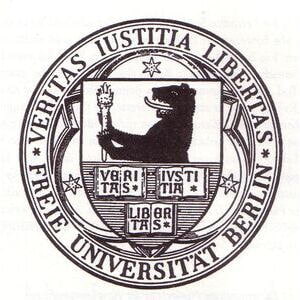
2. Goethe University of Frankfurt am Main

3. University of Munich

4. Heidelberg University - Germany

5. Humboldt University of Berlin
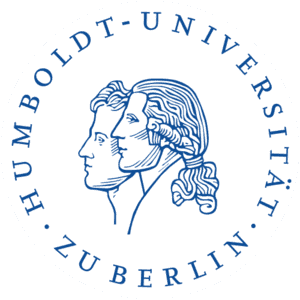
6. University of Cologne

7. University of Hamburg

8. University of Freiburg

9. Saarland University

10. University of Bremen

11. University of Tubingen
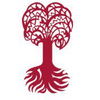
12. University of Gottingen
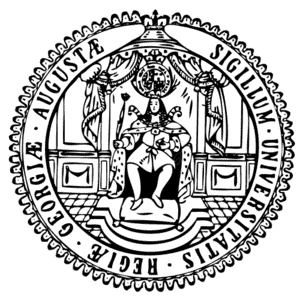
13. Johannes Gutenberg University Mainz

14. University of Leipzig
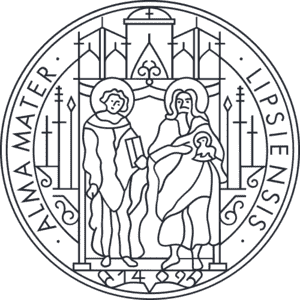
15. University of Munster
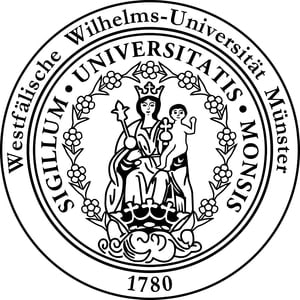
16. University of Konstanz
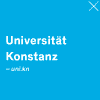
17. University of Bonn

18. University of Bielefeld
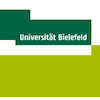
19. University of Erfurt

20. University of Duisburg - Essen
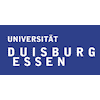

21. University of Marburg
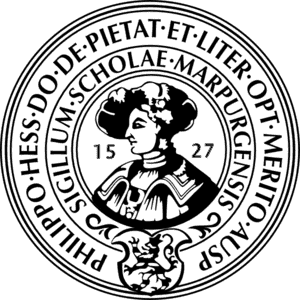
22. Ruhr University Bochum

23. University of Trier
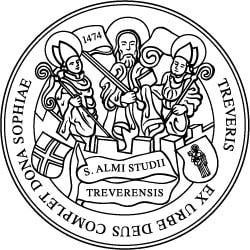
24. University of Potsdam
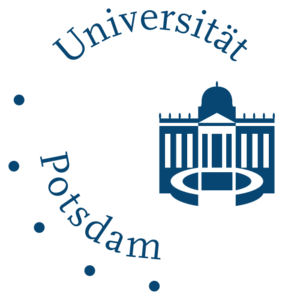
25. University of Stuttgart
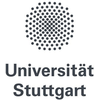
26. University of Wurzburg
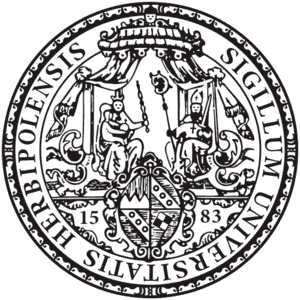
27. University of Augsburg

28. University of Giessen
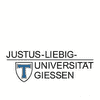
29. Heinrich Heine University of Dusseldorf
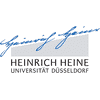
30. Dresden University of Technology

31. University of Bayreuth
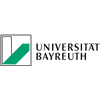
32. University of Erlangen Nuremberg
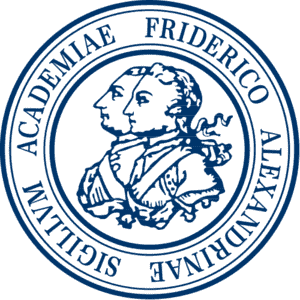
33. University of Siegen
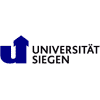
34. Kiel University

35. RWTH Aachen University
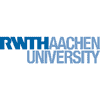
36. TU Dortmund University

37. Technical University of Munich

38. Friedrich Schiller University of Jena

39. University of Wuppertal

40. University of Regensburg

41. University of Kassel
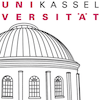
42. Technical University of Berlin
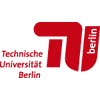
43. Osnabruck University
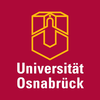
44. Darmstadt University of Technology
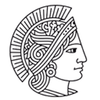
45. University of Mannheim

46. University of Bamberg

47. Braunschweig University of Technology
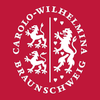
48. Otto von Guericke University of Magdeburg

49. Leuphana University of Luneburg
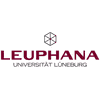
50. Martin Luther University of Halle-Wittenberg
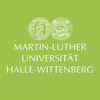
51. University of Passau
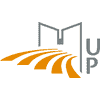
52. Karlsruhe Institute of Technology
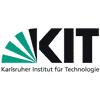
53. Carl von Ossietzky University of Oldenburg
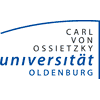
54. University of Paderborn

55. Leibniz University of Hanover
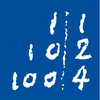
56. University of Rostock

The best cities to study Creative Writing in Germany based on the number of universities and their ranks are Berlin , Frankfurt , Munich , and Heidelberg .
Art & Design subfields in Germany

IMAGES
COMMENTS
Why do we ask this? By confirming your nationality, we can personalise the content on our site for you. (i.e. we can show you the scholarship, visa and tuition information that is most relevant to you).
Below is the list of 100 best universities for Creative Writing in Europe ranked based on their research performance: a graph of 1.17M citations received by 136K academic papers made by these universities was used to calculate ratings and create the top. ... We don't distinguish between undergraduate and graduate programs nor do we adjust for ...
The University of Edinburgh is definitely among Europe's best creative writing schools. It offers postgraduate programs for literature including a Master's in Creative Writing and a PhD in Creative Writing. Their encouraging professors and intensive workshops shape the students to develop their creative skills as a writer.
The PhD in Creative Writing at King's is a practice-led course, incorporating taught elements and aspects of professional development. It is designed to cater for talented, committed writers who are looking to complete a book-length creative work for publication and sustain a long-term career in writing.
PhD programmes in Creative Writing in Europe. Programmes Universities Scholarships. Page 2 | 62 PhDs. Filters 2. Filters 2. 62 PhDs. Sort . Our picks; Lowest tuition Fee; Filters Sort . Show 62 results. English and Creative Writing. Ph.D. / Full-time, Part-time / On Campus. Tuition unknown. 4 years.
A: When choosing a creative writing program in Europe, consider factors such as faculty expertise, program reputation, curriculum structure, available resources, location, and cost. It is crucial to research the program thoroughly, read reviews, and perhaps even reach out to current or former students to get a better understanding of the ...
Discover postgraduate courses in Creative Writing in Europe. Search for degrees across universities and find your perfect match. ... Creative Writing Doctor of Philosophy - PhD; England University of Birmingham School of English, Drama, and Creative Studies. ... Masters Programs; PhDs; Online and Distance Learning; Subjects; Latest Blogs ...
FindAPhD. Search Funded PhD Projects, Programmes & Scholarships in creative writing. Search for PhD funding, scholarships & studentships in the UK, Europe and around the world.
Below is the list of 56 best universities for Creative Writing in Germany ranked based on their research performance: a graph of 62K citations received by 9K academic papers made by these universities was used to calculate ratings and create the top. ... Europe. Germany. 56 Best universities for Creative Writing in Germany. Updated: February 29 ...
FindAPhD. Search Funded PhD Projects, Programmes & Scholarships in Languages, Literature & Culture, European Studies, creative writing. Search for PhD funding, scholarships & studentships in the UK, Europe and around the world.